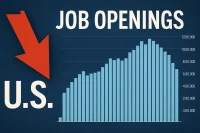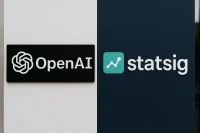For years, the rise of video interviews was hailed as a breakthrough in hiring—fast, scalable, and accessible to candidates anywhere in the world. But in 2025, a troubling side effect has emerged: AI-assisted cheating and even deepfake impostors are infiltrating the recruitment process. Now, major employers are reversing course. Many are bringing back in-person interviews, not because they dislike technology, but because they no longer trust what they see on screen.
The Problem: AI Interview Cheating
Recruiters report that virtual interviews are increasingly plagued by:
- AI prompts off-camera: Candidates secretly use generative AI to answer technical or situational questions.
- Real-time coaching: Tools feed answers into a candidate’s earpiece or chat window during live interviews.
- Deepfake impostors: Some applicants hire stand-ins—or use AI-generated video overlays—to impersonate them.
These practices undermine trust and force employers to reconsider their interview formats.
The Corporate Response: Back to Basics
Faced with growing fraud, companies are implementing stricter verification methods:
- In-Person Interviews—Reinstated as the gold standard for verifying identity and authenticity.
- Biometric Screening—Fingerprint or facial recognition tools confirm candidates are who they say they are.
- Proctored Assessments—Online tests monitored via webcam and keystroke analysis to detect cheating.
- Third-Party Verification Services—Firms like Clear are stepping in to authenticate identities during virtual hiring.
This marks a reversal of pandemic-era flexibility and signals a trust crisis in digital hiring.
Why Employers Are Worried
- Scale of the Issue: Analysts estimate up to 25% of candidate profiles could be fake by 2028 if unchecked.
- Reputation Risks: A fraudulent hire not only wastes time and money but could damage brand reputation.
- Skills Gap Exposure: Hiring someone who cheated through assessments may create costly performance failures later.
Employers argue that it’s cheaper to fly candidates in—or host local in-person sessions—than risk onboarding someone unqualified.
Impact on Candidates
For jobseekers, the return of in-person interviews has mixed implications:
- Higher Costs: Travel, accommodation, and time away from current work can be burdensome.
- Less Accessibility: Candidates from rural areas or abroad lose the equal footing virtual interviews provided.
- More Authenticity: Genuine applicants may benefit, as in-person sessions reduce competition from fraudulent profiles.
Some candidates are frustrated, while others welcome the shift as a return to “real human hiring.”
Need to Attract Top Talent?
Post your jobs today and connect with serious candidates faster.
Post a Job Now →Broader Hiring Trends
This development ties into broader 2025 recruitment shifts:
- AI Everywhere: From resume screening to skill testing, AI is transforming how candidates apply.
- Trust Issues Rising: Employers increasingly question the authenticity of digital submissions.
- Hybrid Solutions Emerging: Many firms now blend remote assessments with final in-person stages.
The hiring process of the future may not be purely digital or physical—it may be a hybrid built on trust and verification.
FAQs
Q1: Why are companies moving back to in-person interviews?
Because AI cheating and deepfake impersonations are making virtual interviews unreliable. Employers want to ensure candidates are authentic.
Q2: What kinds of AI cheating are happening?
Applicants are using off-camera AI tools to answer questions, receiving real-time coaching, or even using deepfake video overlays to impersonate someone else.
Q3: Does this mean virtual interviews are dead?
No, but they’re being supplemented with biometric verification, proctored assessments, and stricter controls.
Q4: How does this affect candidates?
It may increase travel costs and reduce accessibility, but it levels the playing field for honest candidates.
Case Study: Cisco’s Hybrid Verification Model
Cisco Systems offers a real-world case of how companies are tackling the issue.
In early 2025, Cisco discovered several fraudulent hires had slipped through video-only interviews. Some had used AI scripts during technical questions; others outsourced interviews entirely. The fallout was costly—projects delayed, teams disrupted, and reputations dented.
In response, Cisco adopted a hybrid verification model:
- First-round interviews remain virtual for convenience.
- Before an offer, candidates must attend in-person final interviews at regional hubs.
- For overseas candidates, Cisco contracts with local proctoring partners to verify identity, run live skills tests, and ensure biometric checks.
The results have been dramatic: within months, reported fraud dropped by over 70%, and managers expressed renewed confidence in hiring decisions.
Cisco’s approach shows that while AI may complicate recruitment, practical safeguards and in-person verification can restore trust.




